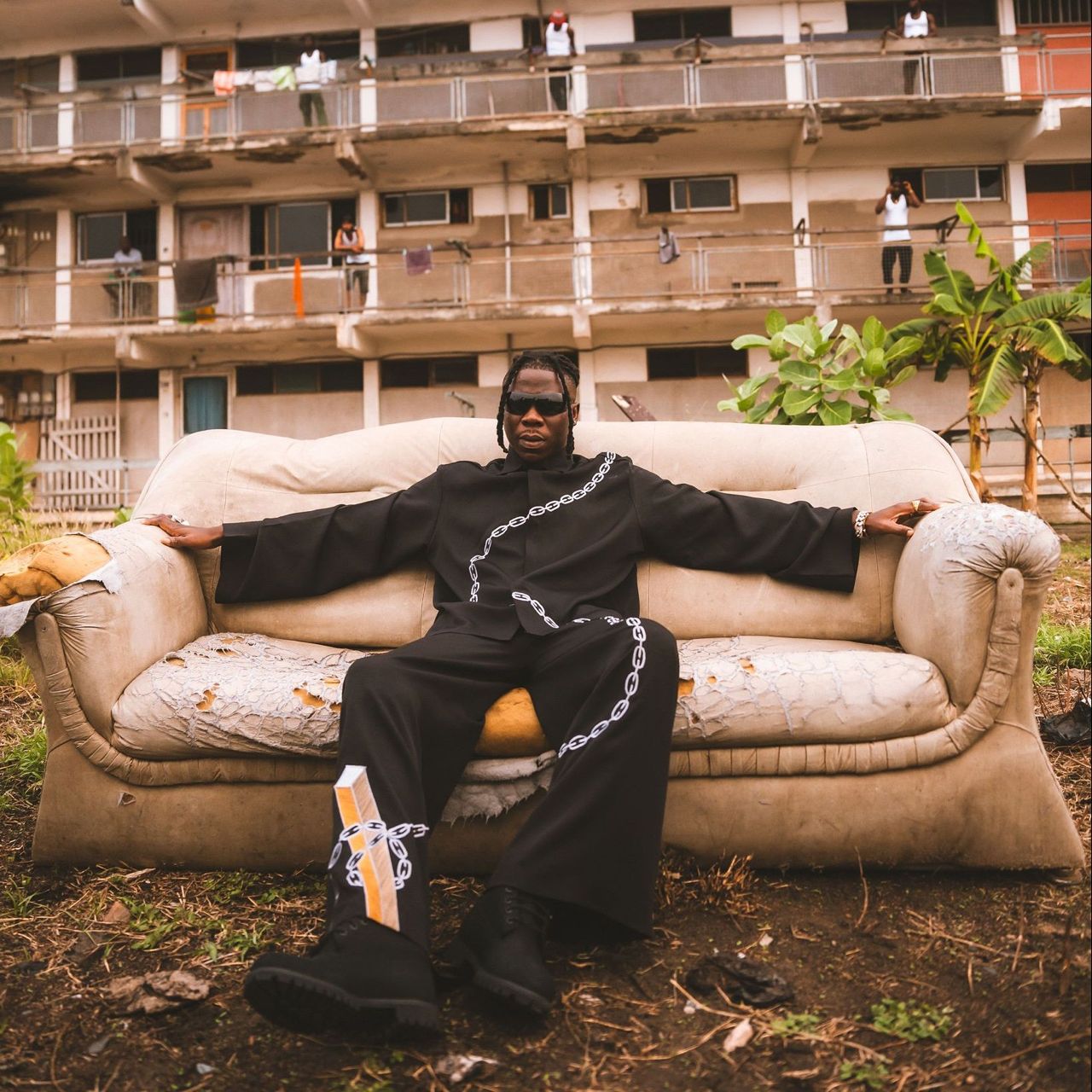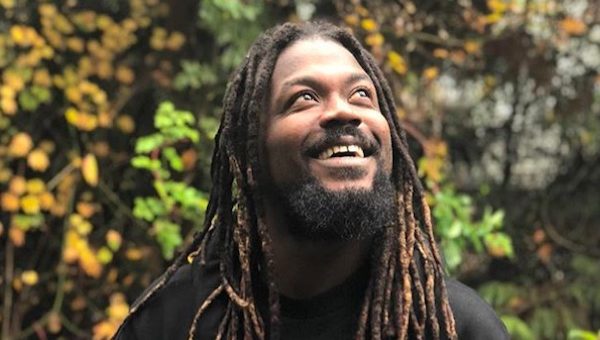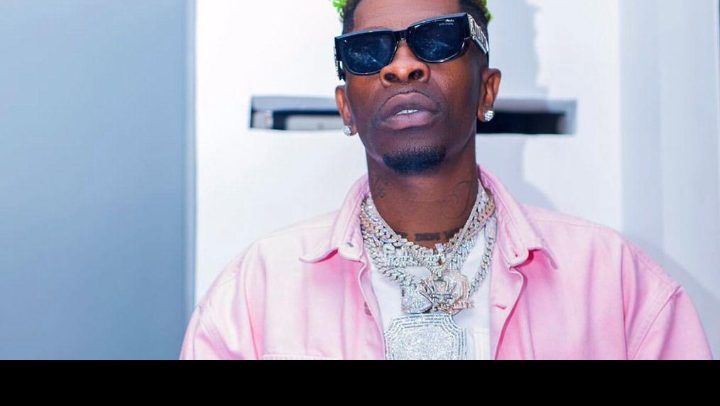
In the Ghanaian music industry, two towering figures have commanded the dancehall scene for over a decade: Stonebwoy and Shatta Wale. Yet, beneath the veneer of their musical prowess lies a simmering feud, characterized by claims to the title of dancehall king and fueled by personal and professional rivalry.
The intense rivalry between these two prominent figures in the dancehall genre has not only endured but has also grown stronger over time, resonating deeply within their loyal fan bases. Stonebwoy’s supporters, known as Bhimnation, and Shatta Wale’s followers, referred to as the Shatta Movement, have become deeply entrenched in this ongoing feud.
The tensions between these two camps reached a boiling point during the 2019 VGMA (Vodafone Ghana Music Awards), when an alarming incident occurred which led to their ban from the award scheme. Stonebwoy, in a moment of intense confrontation, resorted to brandishing a firearm in the direction of Shatta Wale, escalating an already charged atmosphere. This incident further fueled the already heightened animosity between the two factions.
Despite the joint press conference they held on June 4, 2019 to publicly declare their resolution facilitated by police intervention, it is evident that the ongoing feud between the two dancehall icons is far from over. While the press conference may have created an illusion of reconciliation, it is unmistakable that the animosity between them will persist for the foreseeable future.
The underlying tensions and deep-seated rivalry between Stonebwoy and Shatta Wale are likely to continue to shape their interactions and the dynamics within their respective fan bases. The specter of this long-standing conflict looms ominously, casting a shadow over any semblance of a lasting truce.
The recent ‘Salafest’ concert, hosted by Baba Sadiq last Thursday, Aprill 11, 2024, as part of the Eid ul Fitr celebration, cast a stark light on this rivalry, unveiling a disturbing turn of events that transcended mere competition.
Allegations are that when Stonebwoy learnt that, Shatta Wale had also been billed to perform at the concert, he opted to boycott the event. While his action is unfortunate, Shatta Wale’s response on the platform was not only unprofessional but also reprehensible.
In a display of blatant ableism, Shatta Wale unleashed a barrage of insults targeting Stonebwoy’s disability, a move that not only perpetuated harmful stereotypes but also underscored the urgent need for accountability and awareness within the Ghanaian music industry.
In this article, I seek to elucidate why Shatta Wale’s actions necessitate a sincere apology to the disability community of Ghana, examining the broader ramifications of his behaviour and emphasizing the imperative of fostering inclusivity and respect for all individuals. I do this with the background as a professionally trained counselor, with a fair appreciation of how such pronouncements and stereotypes can have significant traumatic impact on Stonebwoy and the disability community as a whole.
Shatta Wale’s derogatory remarks directed at Stonebwoy’s disability at the ‘Salafest’ concert epitomize the insidious nature of ableism—a pervasive form of discrimination and social prejudice against people with disabilities. By weaponizing Stonebwoy’s disability as a means of ridicule, Shatta Wale not only perpetuated damaging stereotypes but also reinforced the pernicious belief that individuals with disabilities are somehow inferior or deserving of scorn.
Such behaviour not only reflects poorly on Shatta Wale as an individual but also highlights the entrenched ableism that continues to pervade Ghanaian society, exacerbating the marginalization and stigmatization faced by people with disabilities.
Moreover, Shatta Wale’s pronouncements at the ‘Salafest’ concert reverberate far beyond the confines of the music industry, sending a distressing message to the disability community at large. People with disabilities already contend with myriad obstacles in their pursuit of equality and inclusion, ranging from physical barriers to societal attitudes and perceptions.
By publicly denigrating Stonebwoy’s disability, Shatta Wale perpetuated harmful stereotypes and further entrenched the societal barriers that impede the full participation of people with disabilities in all aspects of life. This not only erodes the self-esteem and confidence of individuals with disabilities but also undermines efforts to cultivate a more inclusive and equitable society for all.
Furthermore, Shatta Wale’s conduct at the Salafest concert strikes a discordant note in the chorus of efforts to promote diversity and inclusivity within the music industry. Music has long served as a unifying force, transcending boundaries of language, culture, and creed to foster connection and solidarity among people.
However, when artistes misuse their platform to propagate hate speech and perpetuate discrimination, it tarnishes the reputation of the entire industry and undermines its potential to effect positive change. Shatta Wale’s behaviour not only besmirches his own legacy but also reflects poorly on the music industry as a whole, reinforcing the notion that discrimination and prejudice are acceptable.
What is more; it is important to emphasise that Shatta Wale has a significant number of devoted supporters and fans who happen to be disabled. These individuals actively engage with his music and regard him as a source of inspiration and empowerment.
Meanwhile, Shatta Wale’s derogatory remarks targeting Stonebwoy’s disability send a profound message to these fans, implying that they are unwelcome within his space. Such comments not only undermine their sense of belonging and inclusion but also perpetuate harmful stereotypes and prejudices against people with disabilities.
By disregarding the impact of his words on this particular group of ‘disabled’ fans, Shatta Wale inadvertently reinforces a culture of exclusion and discrimination, contradicting the notion of music’s ability to bring people together regardless of their differences.
The point is that, Shatta Wale’s actions at the ‘Salafest’ concert demand a genuine apology to the disability community of Ghana. His disparaging remarks towards Stonebwoy’s disability not only perpetuated harmful stereotypes but also underscored the urgent need for greater awareness and accountability within the Ghanaian music industry.
As a public figure, Shatta Wale wields considerable influence and carries a responsibility to wield that influence responsibly, promoting messages of acceptance, respect, and equality for all individuals, regardless of their abilities. An apology from Shatta Wale would not only acknowledge the harm caused but also serve as a crucial step towards fostering a more inclusive and respectful society for people with disabilities in Ghana and beyond.
Shatta Wale’s actions serve as a stark reminder of the work that remains to be done in dismantling discriminatory attitudes and fostering a more equitable society. It is imperative that we hold individuals accountable for their words and actions, particularly those in positions of influence, and work collectively towards building a society that embraces diversity and celebrates the inherent worth and dignity of every individual.
Although I recognize that engaging in rivalries has become ingrained in the music industry, particularly within the dancehall genre, even at the global level, I strongly advocate for a form of beef that refrains from targeting individuals’ disabilities, personal struggles, and private lives.
While healthy competition and playful banter can add excitement to the music industry, it is crucial to draw a line and ensure that such exchanges do not cross into the line of personal attacks or discrimination.
By prioritizing respect and empathy, artistes can contribute to a more inclusive and supportive environment, where the focus remains on the music itself rather than tearing down individuals based on their vulnerabilities. It is essential to foster an atmosphere that encourages creativity without compromising the dignity and well-being of others involved.
Thank you for reading today’s episode. Continue to follow the insightful articles I share on this page.
See you.
Writer: Daniel Fenyi
The writer is a licensed counselor, professional writer and conference speaker who guides the youth through his writings. If you have any concerns, reach him via email [email protected]
The post ‘No Mercy for the Cripple’: Shatta Wale should apologise to disability community for describing Stonebwoy as ‘Apakye Celebrity’ first appeared on 3News.
Read Full Story




















Facebook
Twitter
Pinterest
Instagram
Google+
YouTube
LinkedIn
RSS